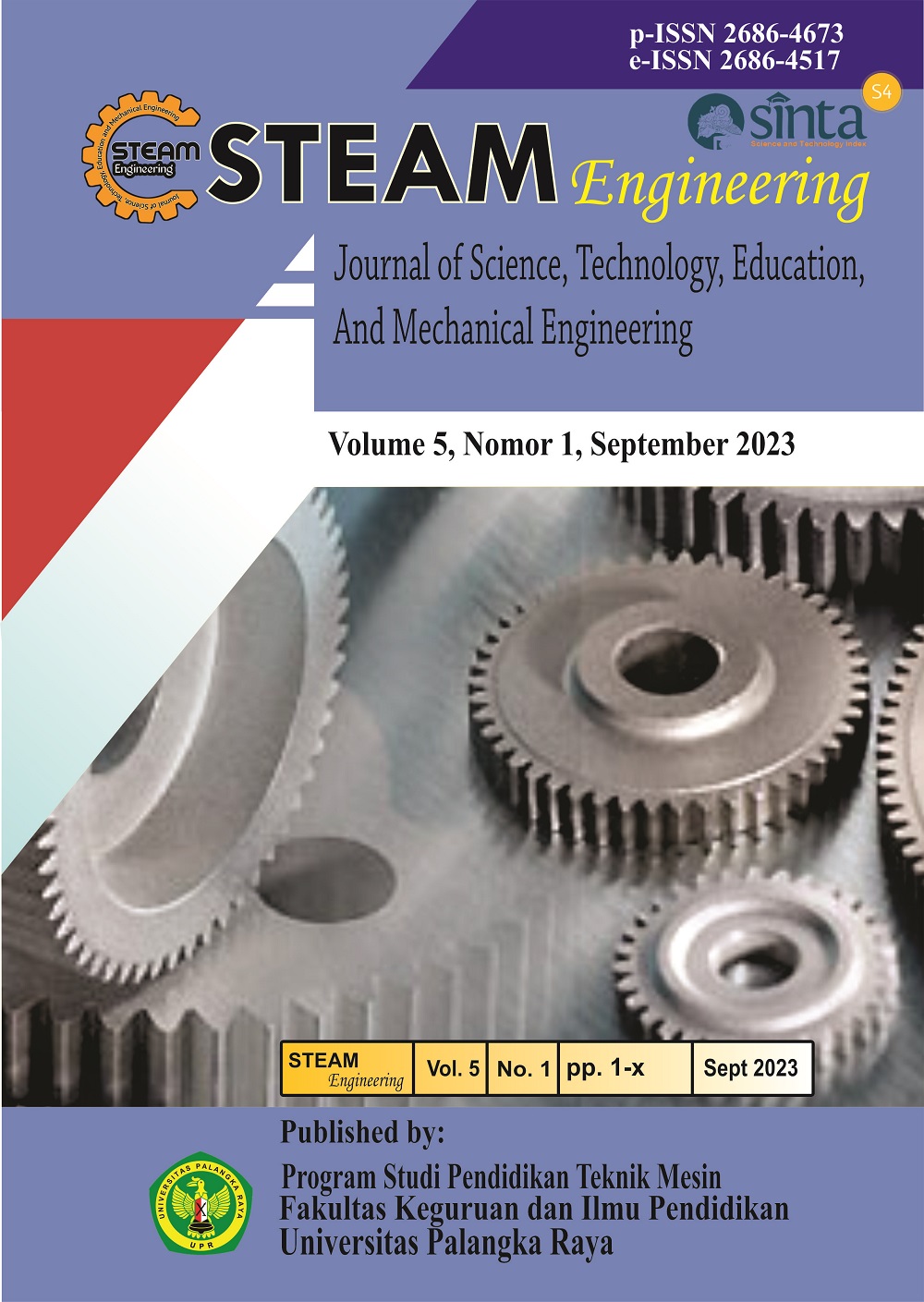PENGARUH JUMLAH LILITAN DAN JENIS MATERIAL COIL PADA PV SOLAR ELECTRIC WARMER DOC
DOI:
https://doi.org/10.37304/jptm.v5i1.10511Abstract
DOC brooding period where chicks need heating for development for 14 days with temperatures of 30°C-34°C. During the use of ordinary heating devices, another alternative is to use solar panel-based electric heating because it can save energy sources. The objectives of this research are (1) to determine the effect of variations in the number of coil material turns from 20, 30 and 40 turns on the heat produced by the PV Solar Electric Warmer DOC, (2) to determine the effect of the thermal conductivity of the coil material (copper and nickel) on the heat generated. produced by PV Solar Electric Warmer DOC. The method used is experimental by varying the number of coil windings using thermal conductivity of copper and nickel materials to the heat generated by PV Solar Electric Warmer DOC. The use of variations in the number of coil windings in this study was 20, 30 and 40. The results of this study are the greater the number of coil windings and the type of thermal conductivity affects the heat generated by PV Solar Electric Warmer DOC. In the test copper coil with winding 20 has an average temperature of 30°C, winding 30 averaging 31°C and winding 40 averaging 31°C. When testing nickel materials with the number of windings 20 have an average of 31°C, winding 30 averaging 32°C and winding 40 averaging 33°C. In thermal conductivity testing, nickel coil material reaches the highest temperature of 35° C and copper coil testing reached a high temperature of 32°C
Downloads
References
Agustina, I., & Astuti, D. (2015). Penentuan Konduktivitas Termal Logam Tembaga, Kuningan, dan Besi dengan Metode Gandengan. Prosiding Seminar Nasional Fisika Dan Pendidikan Fisika (SNFPF) Ke-6 2015, 6, 30–34.
Ahmedsham, M., Tase, K., Yoseph, M., Aliyi, M., & Adera, B. (2018). Comparing the Growth Performance of Baby Chicks under HayBox Brooder Technology and Infra-Red Electric Brooder. ARC Journal of Animal and Veterinary Sciences, 4(1), 27–33. https://doi.org/10.20431/2455-2518.0401005
Asrori, A., & Harie S. Jaya. (2023). Pengaruh Radiasi Matahari Dan Jenis Material Coil Pada Pv-Module Solar Electric Cooker. Steam Engineering, 4(2), 77–87. https://doi.org/10.37304/jptm.v4i2.5168
Asrori, A., & Yudiyanto, E. (2019). Kajian Karakteristik Temperatur Permukaan Panel terhadap Performansi Instalasi Panel Surya Tipe Mono dan Polikristal. FLYWHEEL : Jurnal Teknik Mesin Untirta, 1(1), 68. https://doi.org/10.36055/fwl.v1i1.7134
Faza, M. K. (2020). Pengaruh variasi jumlah lilitan coil induktansi tehadap perubahan temperatur pada dapur induksi elektromagnetik. 13–14.
Khaing, M. M., & Aung, S. S. (2014). Design and Comparison of Conductor Size for Induction Cooker Coil. 03(07), 1240–1244.
Mulyanto, A. (2011). PERBANDINGAN KONDUKTIVITAS TEMBAGA, BAJA DAN ALUMUNIUM. 62, 2–4.
Newalse, Y., Iskandar, R. F., Ajiwiguna, T. A., Elektro, F. T., Pemanas, F., & Transfer, F. (2019). Evaluasi Karakteristik Variasi Lilitan Terhadap Respon Evaluation Characteristics of Coil Variations on Dynamic Response and. E-Proceeding of Engineering, 6(1), 1105–1112.
Purwoto, B. H., Jatmiko, J., Fadilah, M. A., & Huda, I. F. (2018). Efisiensi Penggunaan Panel Surya sebagai Sumber Energi Alternatif. Emitor: Jurnal Teknik Elektro, 18(1), 10–14. https://doi.org/10.23917/emitor.v18i01.6251
Putra, D. A., & Mukhaiyar, R. (2020). Monitoring Daya Listrik Secara Real Time. Voteteknika (Vocational Teknik Elektronika Dan Informatika), 8(2), 26. https://doi.org/10.24036/voteteknika.v8i2.109138
Rusydy, A. F., Mahfudz, L. D., & Nasution, M. H. (2022). Nutrient Digestibility and Apparent Metabolizable Energy of Broiler Chick which Nucleotide Supplemented at Different Environmental Temperatures. 223–228.
Sutarno, S. dan. (2018). Peerancangan Koil Pemanas Untuk Tungku Induksi Menggunakan Konduktor Tembaga. 45–57.












